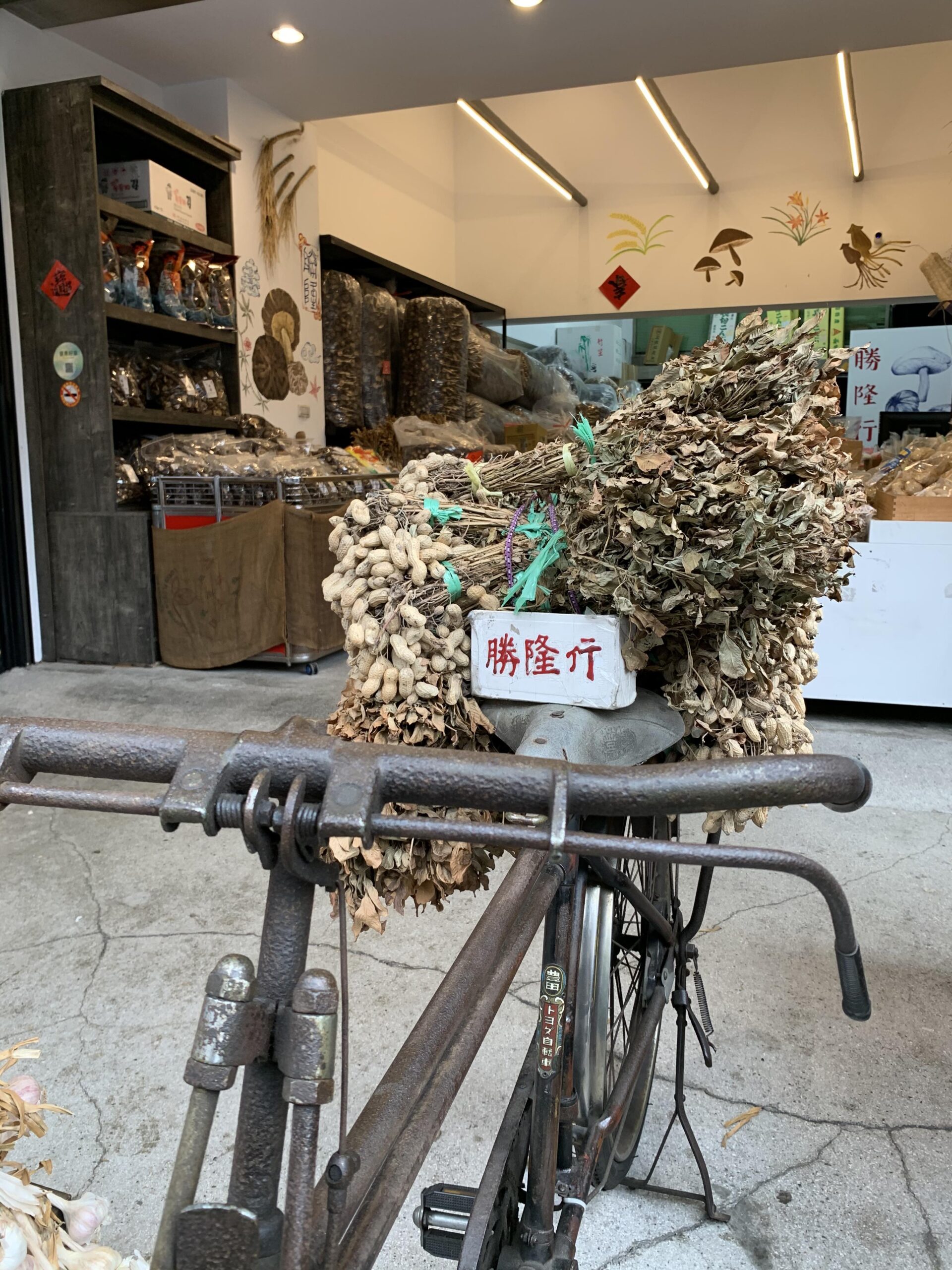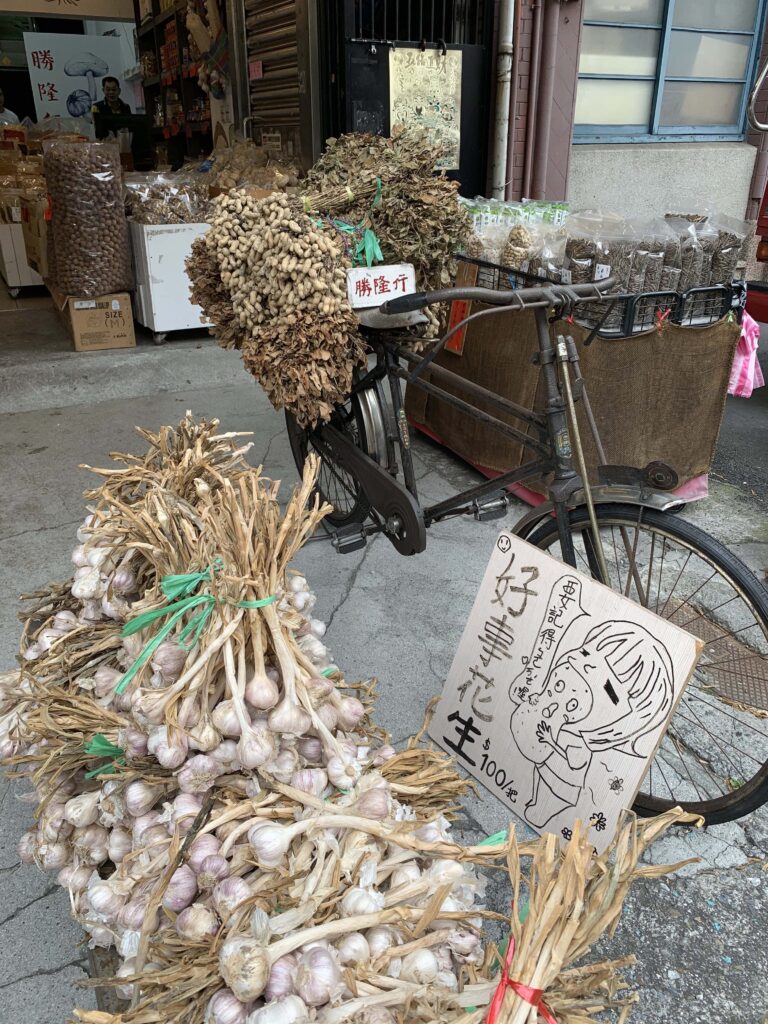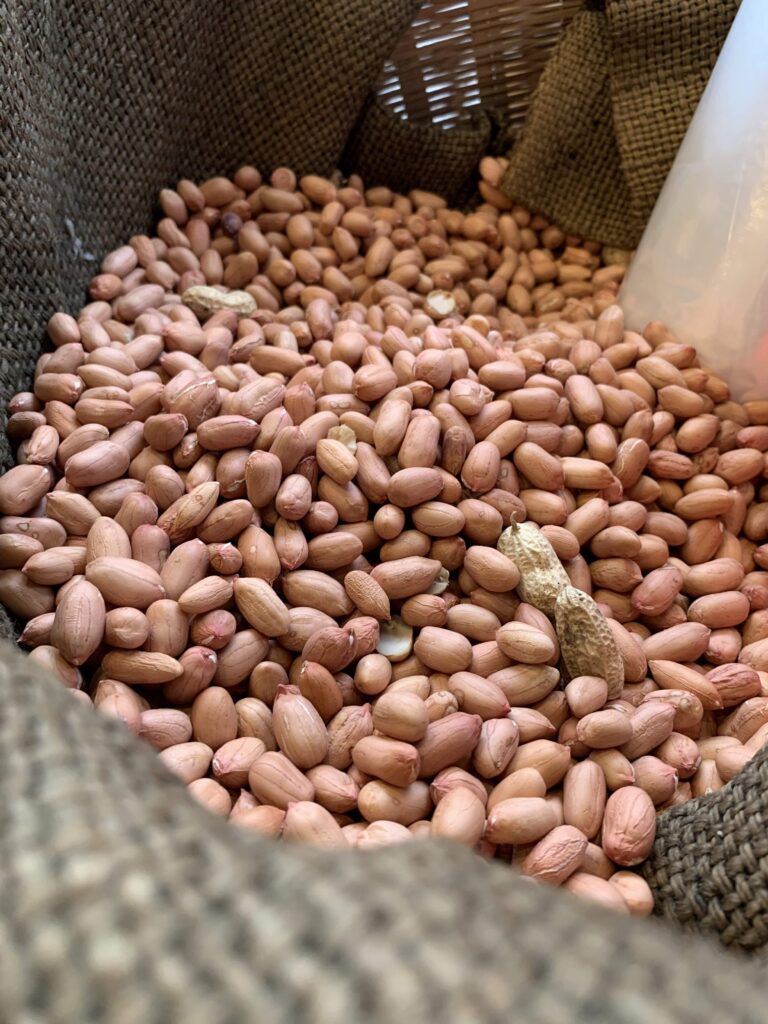Dadaocheng (大稻埕), which played an essential role in Taipei’s economic history in 1860, became a distribution center for trading goods after Tamsui Harbor (淡水港) opened. It was also the largest commodity business center in northern Taiwan during that time. Dihua Street (迪化街, in Dadaocheng) was the busiest area. A variety of economic and cultural buildings, including traditional southern Fujian buildings and western-style houses, were constructed there. Today, Dihua Street has retreated from its prominent position of a hundred years ago, but retains a sense of “old Taipei,” and its alleys are full of history. Today, Dihua Street is a major street for dry foods and grocery shops, especially those selling goods and supplies for the New Year’s festival.
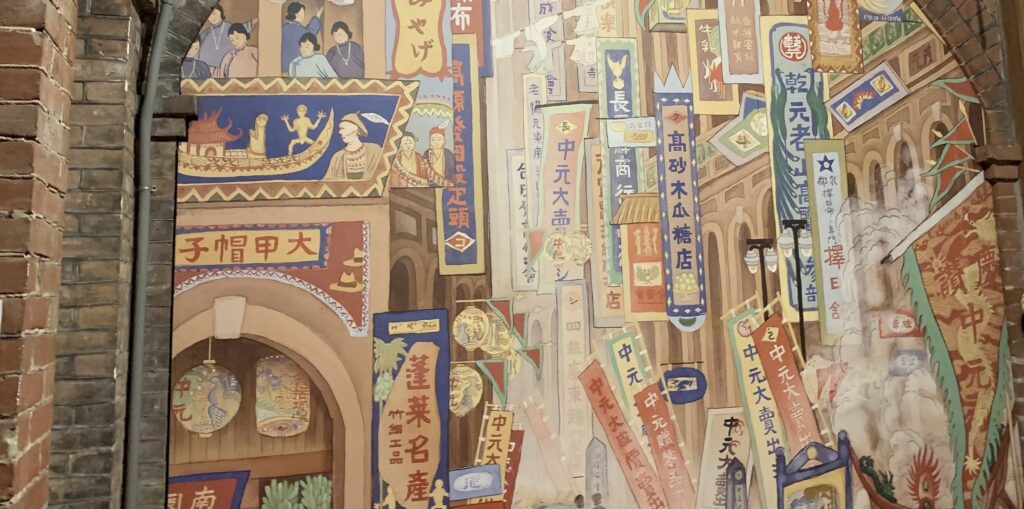
Shenglong Grocery Store (勝隆行), which specializes in dried shiitake mushrooms, is located toward the middle of Dihua Street. The store also carries festival snacks, supplies, delicious dried fruits, and more. However, many people stop because the entrance of the store catches their eye. Outside the shop, a retro bicycle holds a bunch of peanuts with roots and leaves. A sign placed nearby says, “Good things peanuts,” (好事花生 or “Good things happen”) making a play on words because ‘Peanuts’ and ‘Happen’ have a similar pronunciation in Chinese.
The owner, Shu-Jen Chen (陳淑貞) says that the peanuts are grown by her husband’s family from Chiayi (嘉義), and she confidently guarantees the quality of the peanuts produced in the family farm. Unlike the peanut kernels sold in usual markets, Shenglongxing’s peanuts are sold with their roots and leaves. Mrs. Chen enthusiastically introduces various cooking methods for the different parts; for instance, the peanut leaves can be used to make tea, and the peanuts can be stir-friend with vegetables. The entrance of Shenglonghangdisplays many other products from Chiayi’s hometown as well, including garlic, potatoes, and dried vegetables.
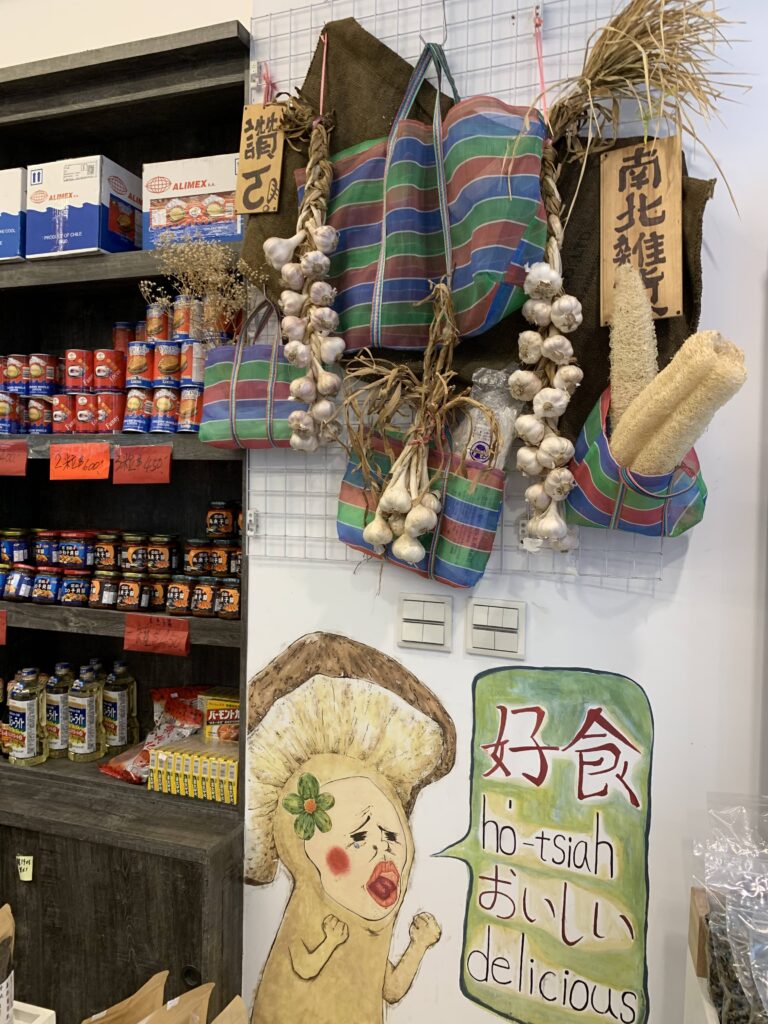
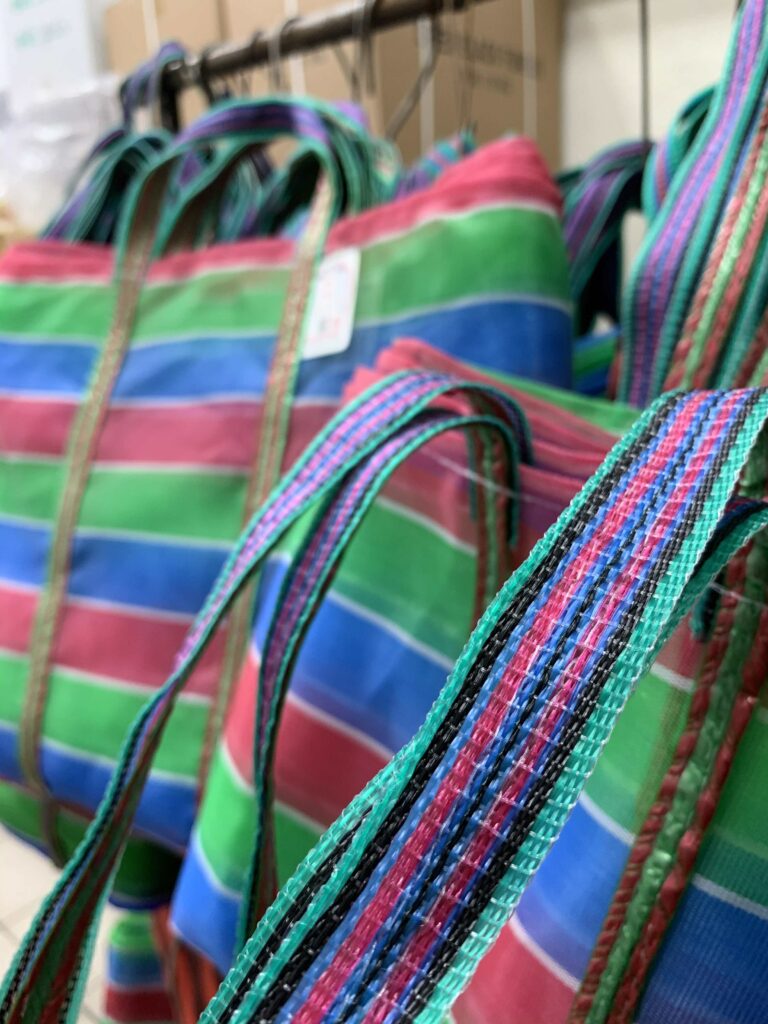
One of the most popular items in the store is the Taiwan signature market tote bag. 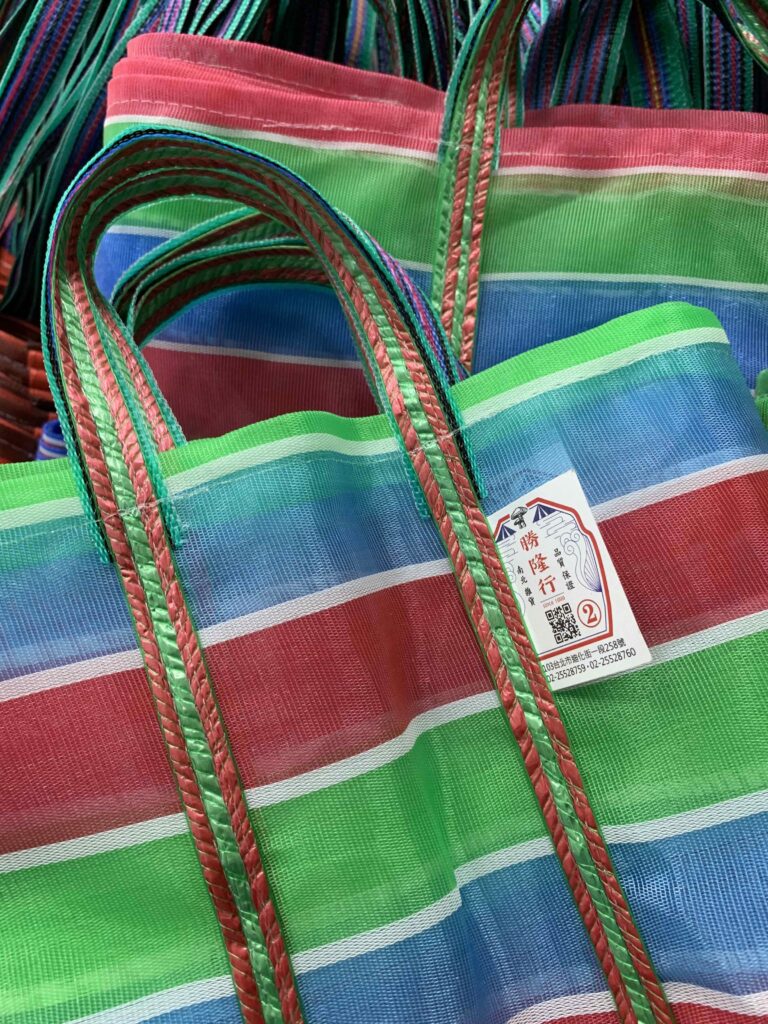
She said travelers from all over the world came to buy these colorful bags as souvenirs before the pandemic.
Mrs. Chen says the shop is a major part of her life. It is also a place where families gather. Children and grandchildren who no longer live at home come back for dinner together every day. Their children are also painting different creations in the store, which brings a lively atmosphere to the traditional dry goods. Moreover, the young generation has begun to help the business by transforming and setting up online platforms to sell their products, so that their local shop can reach more people.
Mrs. Chen is enthusiastic and makes small talk with the guests who came in. The shop has established loyal consumers thanks to Mrs. Chen’s sweet personality, and of course, the quality of the agricultural goods from the family’s Chiayi farm.
Mrs. Chen has lived in Dihua Street for decades. As she speaks about how Dihua Street has changed, she shares that the neighbors are bonding and helping each other. They have witnessed each other’s children grow up and move out. It is a close community. Many creative modern cultural shops have moved to this area in recent years, breathing new life into this traditional old town. But one thing is still the same –
Dihua Street, where the old and the new culture come together, retains the purest warmth and affections of Taipei’s people.
Interviewed on April 9, 2021 / Photography by Richelle Sze
Check Out Our Latest Posts
- Tea Master Chang Nai-Miao Memorial Hall
- Day-Good Restaurant
- Sheng-Long Dried Food Shop
- Ho Hsing 1947
Subscribe Our Newsletter!
